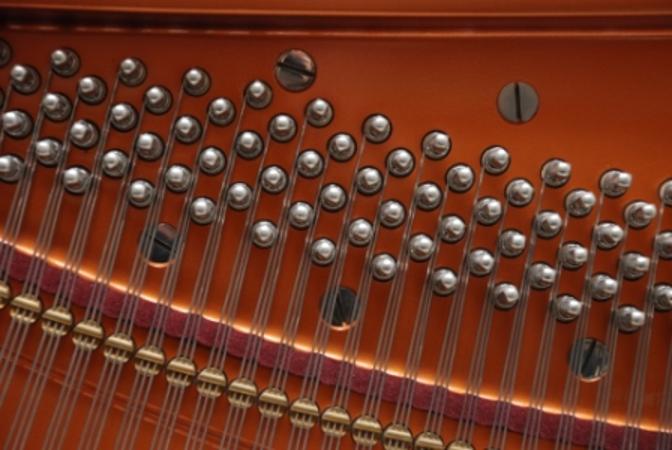Piano Tuner in Inverclyde, Renfrewshire, Glasgow, the west of Scotland and beyond.
Reminiscences of Johan Strauss .mp3

Tuning Fees
TUNING
My standard fee for a tuning is £80.
Additional charges apply for long distances.
Special rates are available for schools and other institutions with multiple pianos.
PITCH RAISE
When a piano hasn't been tuned for a long time, it is likely to have dropped below Concert Pitch (the international standard in which the A above Middle C is at 440Hz).
A piano substantially below Concert Pitch requires a Pitch Raise to get it properly in tune at the correct pitch. This is a "two-pass" tuning; effectively a double tuning. The strings are tuned sharp by a calculated amount, from where they settle back to approximately the right place. They are then fine tuned at the right pitch.
The cost and viability of a Pitch Raise can be discussed when assessing the piano.
DISTANCE - A LOGISTICAL PROBLEM
The West of Scotland poses special problems for making a living from piano work. There are few population centres - Glasgow is the only large city - and towns are spread far apart.
Let's imagine a piano technician based, like me, in Gourock. Someone asks about a tuning in, say, the Highland town of Fort William. That's 110 miles away from Gourock, and the journey takes about 3 hours. So, 6 hours of a day just driving to and from the job. Allow two hours for tuning, a reasonable time for rural pianos maybe less frequently maintained. That adds up to an 8-hour day for a single tuning.
An average tuning fee in 2025 is around £80; more in London. £80 divided by 8 gives £10 per hour. That's less than the National Minimum Wage. Count fuel costs, tyre wear and a £22 ferry fare, and earnings become very substantially below the minimum national wage, for carrying out work which requires great skill, knowledge and concentration.
Because of low population density, it is not often possible to arrange three or more tunings in the same area. Even if possible, an overnight B&B stay would be needed as it's impossible to travel there, tune three or four pianos and travel back all in the same day, especially in the months of short daylight hours.
Compare all this with somewhere like, say, Hampshire in the South of England, where almost 1.4 million people live within a relatively small radius, with many populous and fairly wealthy towns an easy drive away.
An additional factor is that Councils used to have school and other pianos tuned faithfully twice a year, from central budgets. This work was put out to tender and provided "bread and butter" work for tuners. Since the 2008 recession, Councils (with some exceptions) no longer provide this, and leave it to schools to maintain the pianos from their own school budgets. With so many pressures on resources, it is understandable that piano maintenance gets deferred.
All this may help you to see why no-one earns a full-time living with piano work on the West Coast of Scotland.
Compare these figures with the published national teacher salary for a teacher at the top of the scale (like me) and you will see why when more than one option is available, for me piano work, however enjoyable, has to take second place.
